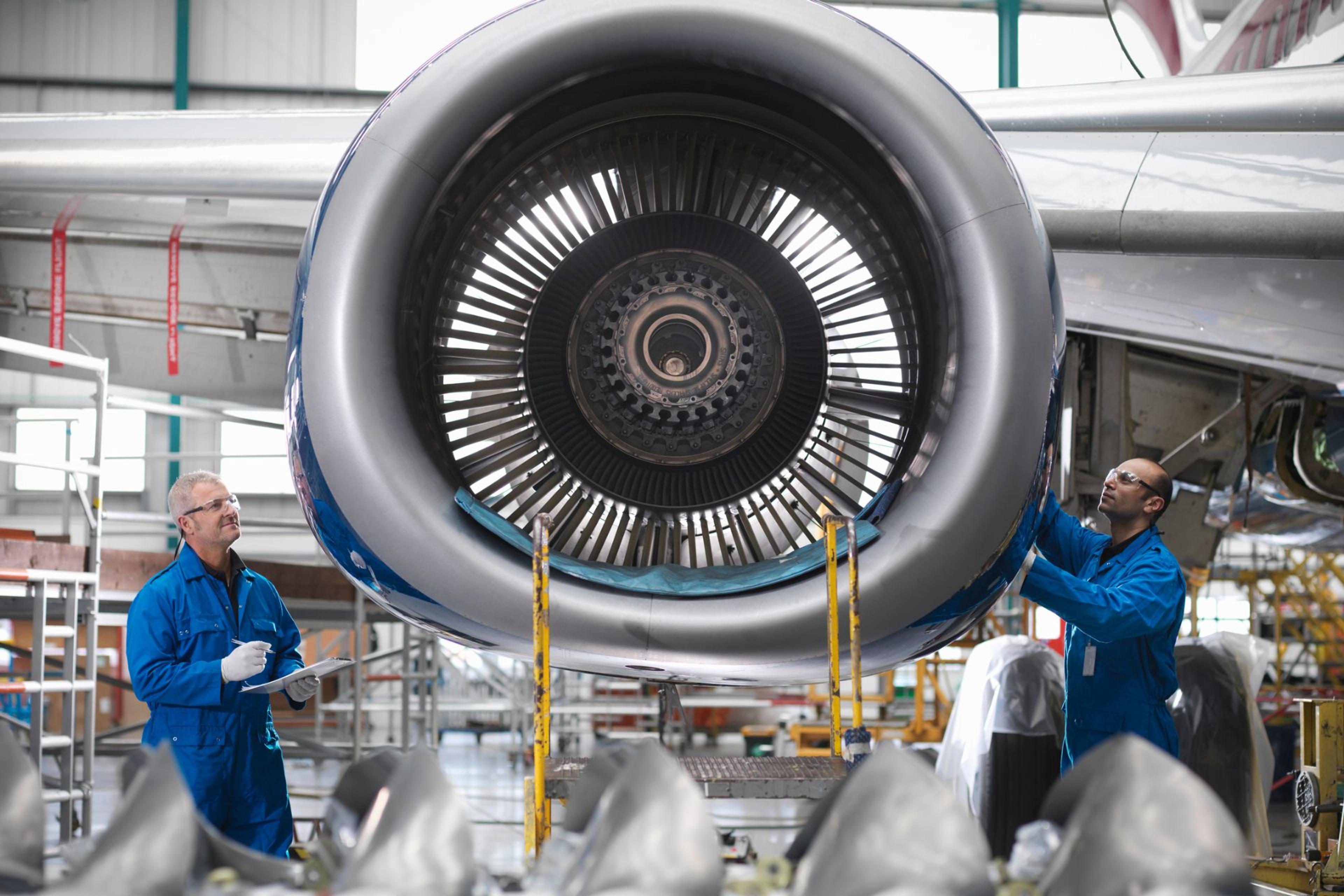The Best Colleges for Mechanical Engineering
Discover the top colleges for mechanical engineering and kick-start your career in this dynamic field.
Posted June 13, 2025

Join a free event
Learn from top coaches and industry experts in live, interactive sessions you can join for free.
Table of Contents
Mechanical engineering is a highly competitive field, with a multitude of colleges and universities offering programs in this discipline. However, not all institutions are created equal when it comes to providing a comprehensive education and preparation for a successful career in mechanical engineering. In this article, we will explore the top colleges for mechanical engineering and what sets them apart from the rest.
The Best Colleges for Mechanical Engineering: Introduction
Before diving into the specifics, let's take a moment to understand why choosing the right college is crucial for mechanical engineering students. A well-respected program can provide students with access to state-of-the-art facilities, experienced faculty, and valuable networking opportunities. These colleges also tend to have strong ties with industry partners, which can open doors to internships and job opportunities.
When it comes to mechanical engineering, the field is constantly evolving with new technologies and advancements. As a result, it is essential for aspiring mechanical engineers to receive a comprehensive education that not only covers the fundamentals but also exposes them to cutting-edge research and innovation. The best colleges for mechanical engineering understand this need and strive to provide their students with a curriculum that is both rigorous and forward-thinking.
One of the key advantages of attending a top mechanical engineering college is the access to state-of-the-art facilities. These institutions invest heavily in their engineering departments, ensuring that students have access to the latest equipment and technologies. From advanced computer labs to well-equipped workshops, these colleges create an environment that fosters hands-on learning and allows students to apply theoretical knowledge to real-world problems.
Experienced faculty members are another crucial aspect of a reputable mechanical engineering program. The best colleges attract renowned professors who have extensive industry experience and a deep understanding of the field. These professors not only deliver high-quality lectures but also serve as mentors, guiding students through their academic journey and helping them develop the necessary skills to excel in their careers.
Networking opportunities are also abundant in top mechanical engineering colleges. These institutions often have strong ties with industry partners, including engineering firms, manufacturing companies, and research organizations. Through guest lectures, industry-sponsored projects, and career fairs, students have the chance to connect with professionals in the field and gain valuable insights into the industry. These connections can lead to internships and job opportunities, giving students a head start in their careers even before graduation.
Furthermore, the best colleges for mechanical engineering often prioritize research and innovation. They encourage students to engage in cutting-edge research projects, collaborate with faculty members, and contribute to advancements in the field. By immersing themselves in research, students not only deepen their understanding of mechanical engineering but also develop critical thinking and problem-solving skills that are highly sought after by employers.
In conclusion, choosing the right college for mechanical engineering is crucial for students who want to thrive in this dynamic field. The best colleges provide access to state-of-the-art facilities, experienced faculty, and valuable networking opportunities. They prioritize research and innovation, preparing students to tackle the challenges of the ever-evolving mechanical engineering industry. So, whether you're passionate about designing innovative machines or developing sustainable energy solutions, selecting a top mechanical engineering college can set you on the path to a successful and fulfilling career.
Mechanical Engineering as a Career
First and foremost, let's examine why you should consider a career in mechanical engineering. Mechanical engineers play a critical role in designing, developing, and maintaining various mechanical systems and devices. From automobiles and aircraft to renewable energy systems and robotics, mechanical engineers are at the forefront of technological innovation. The field offers a wide range of career possibilities and excellent earning potential, making it an enticing option for many aspiring engineers.
However, it's important to note that pursuing a career in mechanical engineering requires a strong aptitude for math and science. Problem-solving skills, attention to detail, and the ability to work well in a team are also essential qualities for success in this field.
When it comes to designing automobiles, mechanical engineers are responsible for creating efficient and reliable engines, as well as ensuring the safety and performance of the vehicle. They work closely with other engineers and designers to optimize the aerodynamics, fuel efficiency, and overall functionality of the vehicle. In addition, mechanical engineers are involved in the development of advanced safety features, such as collision avoidance systems and adaptive cruise control.
In the aerospace industry, mechanical engineers are involved in the design and development of aircraft and spacecraft. They work on various aspects of the aircraft, including the propulsion system, structural components, and control systems. Mechanical engineers also play a crucial role in ensuring the safety and reliability of the aircraft, conducting extensive testing and analysis to identify and mitigate potential issues.
Renewable energy systems, such as wind turbines and solar panels, are another area where mechanical engineers make a significant impact. They are responsible for designing and optimizing the mechanical components of these systems, ensuring their efficiency and reliability. Mechanical engineers also work on the integration of renewable energy systems into existing infrastructure, such as power grids, to maximize their effectiveness.
Robotics is a rapidly growing field, and mechanical engineers are at the forefront of its development. They design and build robots for various applications, ranging from manufacturing and healthcare to exploration and entertainment. Mechanical engineers work on the mechanical components of robots, such as the joints and actuators, as well as the overall system integration and control.
In conclusion, a career in mechanical engineering offers a wide range of opportunities to work on cutting-edge technologies and contribute to the advancement of various industries. With a strong foundation in math and science, problem-solving skills, and the ability to work well in a team, you can embark on a rewarding and fulfilling career as a mechanical engineer.
Should You Choose Mechanical Engineering as a Major
Choosing the right major is a crucial decision that can significantly impact your future career prospects. If you have an innate curiosity for how things work and a passion for applying scientific principles to solve real-world problems, then mechanical engineering may be the perfect fit for you.
It's worth noting that mechanical engineering is a challenging major that requires dedication and hard work. The curriculum typically includes coursework in subjects like thermodynamics, mechanics, materials science, and computer-aided design. A strong foundation in these areas will prepare you for the technical challenges you'll face as a practicing mechanical engineer.
Mechanical Engineering Major Requirements
When selecting a college for mechanical engineering, it's essential to consider the specific major requirements of each institution. While most programs cover similar core subjects, there can be variations in the courses offered and the flexibility of the curriculum.
Some colleges may offer specialized tracks within the mechanical engineering program, allowing students to focus on areas such as aerospace, automotive, or energy systems. These tracks can provide a more tailored education and better align with your specific career goals.
Additionally, it's crucial to review the prerequisites and the availability of hands-on laboratory experiences. Having access to well-equipped labs and the opportunity to work on real-world projects can enhance your learning experience and better prepare you for a successful career in mechanical engineering.
The Top Colleges for Mechanical Engineering: Acceptance Rate, Program, Curriculum
Now that we've discussed the importance of the mechanical engineering major and the specific requirements, let's delve into the top colleges for mechanical engineering.
1. Massachusetts Institute of Technology (MIT)
MIT consistently ranks among the best engineering schools in the world. Its mechanical engineering program provides students with extensive laboratory experiences, cutting-edge research opportunities, and a broad range of elective courses to tailor their education.
Acceptance Rate: 6.7%
Program Highlights: MIT's mechanical engineering program emphasizes hands-on learning, collaborative projects, and interdisciplinary research. Students have access to state-of-the-art facilities such as the Center for Materials Science and Engineering and the Laboratory for Manufacturing and Productivity.
2. Stanford University
Stanford University offers a comprehensive mechanical engineering program with a strong focus on innovation and entrepreneurship. Students have the opportunity to participate in groundbreaking research projects and benefit from the university's close proximity to Silicon Valley.
Acceptance Rate: 4.34%
Program Highlights: Stanford's mechanical engineering program encourages interdisciplinary collaboration and offers a wide range of elective courses. The university also provides resources for students to transform their innovative ideas into successful startups through programs like the Stanford Technology Ventures Program.
3. California Institute of Technology (Caltech)
Caltech's mechanical engineering program is renowned for its rigorous curriculum and emphasis on fundamental principles. The small class sizes and close student-faculty interaction contribute to a personalized learning experience.
Acceptance Rate: 6.4%
Program Highlights: Caltech's mechanical engineering program covers a broad range of topics, from solid mechanics and fluid dynamics to robotics and control systems. The university's proximity to major aerospace and technology companies offers numerous research and internship opportunities.
Best Colleges for Mechanical Engineering: Final Thoughts
Choosing the best college for your mechanical engineering education is a critical step toward a successful career. While the colleges mentioned here are among the top-ranked institutions globally, it's essential to consider other factors such as location, cost, and campus culture when making your decision.
Remember, the best college for mechanical engineering is the one that aligns with your educational goals, offers a comprehensive curriculum, and provides the resources necessary for your personal and professional growth. So, do thorough research, visit campuses if possible, and make an informed choice that will pave the way for a rewarding career in mechanical engineering.
Need help narrowing down your options or perfecting your application? Work with a top college admissions coach who specializes in engineering admissions. Whether you're targeting top mechanical engineering programs or want insider feedback on your personal statement, our expert coaches can help you apply with clarity and confidence.
FAQs
What is the difference between mechanical engineering and mechanical engineering technology?
- Mechanical engineering focuses on theoretical concepts, design, and the development of new technologies, often involving advanced mathematics and physics. In contrast, mechanical engineering technology emphasizes practical application, implementation, and hands-on experience with existing technologies. Graduates from mechanical engineering programs often pursue roles in research and design, while those from technology programs may focus on manufacturing and implementation.
Do mechanical engineering programs offer co-op or internship opportunities?
- Yes, many mechanical engineering programs incorporate cooperative education (co-op) or internship experiences into their curriculum. These opportunities allow students to gain practical, hands-on experience in the industry, often alternating between academic semesters and full-time work placements. Such experiences can enhance employability and provide valuable industry connections.
What are the typical software tools used in mechanical engineering programs?
- CAD Software: SolidWorks, AutoCAD, CATIA
- Simulation Tools: ANSYS, MATLAB, Simulink
- Programming Languages: Python, C++
Is professional licensure required for mechanical engineers?
- Earning an accredited engineering degree
- Passing the Fundamentals of Engineering (FE) exam
- Gaining relevant work experience (usually four years)
- Passing the Principles and Practice of Engineering (PE) exam
What are the prospects for mechanical engineering graduates in emerging industries?
- Mechanical engineering graduates are increasingly finding opportunities in emerging fields such as renewable energy, robotics, and biomedical engineering. Their skills in design, analysis, and problem-solving are valuable in developing sustainable technologies, automation systems, and medical devices. Staying updated with industry trends and acquiring interdisciplinary knowledge can further enhance employability in these sectors.
































